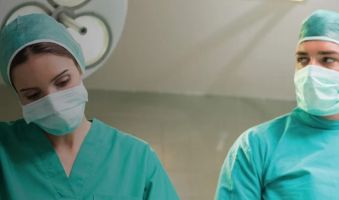Anaesthesia Fundamentals | Physiology | Functional Liver Anatomy and Blood Supply



Functional Liver Anatomy and Blood Supply
Session overview
Description
Knowledge of liver function is essential for all clinicians. Understanding its unique functional structure underpins this knowledge
Learning objectives
By the end of this session you will be able to:
- Differentiate between the gross anatomical and functional liver structure
- Recognise the blood supply
- Recall the regulation of blood flow in the liver
- Identify the liver acinus, and describe its blood flow and function
- Indicate the relation between sinusoids, hepatocytes and Kupffer cells
- List the main functions of mitochondria, smooth and rough endoplasmic reticulae in hepatocytes, and explain the purpose of the microvilli
- Explain biliary drainage
The liver is a unique organ with endocrine and exocrine functions, that also acts as a blood filter. It has a dual blood supply from the arterial and portal circulations, and is the first organ any substance that passes through the intestinal wall reaches before entering the systemic circulation. As such, it has the ability to destroy, modify or excrete all substances.
- Anaesthesia Fundamentals | Physiology | Ventilatio...
- Posted By eIntegrity Healthcare e-Learning
- Posted Date: 2024-12-26
- Location:Online
- This session describes how and why ventilation and perfusion vary in the healthy lung. Causes of hypoxia, such as hypoventilation, increased dead space and shunt, are discussed to help the trainee explain and manage hypoxia clinically.
- Anaesthesia Fundamentals | Physiology | Pulmonary ...
- Posted By eIntegrity Healthcare e-Learning
- Posted Date: 2024-12-26
- Location:Online
- This session covers the measurement and clinical importance of lung volumes, including functional residual capacity and dead space. Information regarding the performance and interpretation of flow-volume loops is also included.
- Anaesthesia Fundamentals | Physiology | Co2 Carria...
- Posted By eIntegrity Healthcare e-Learning
- Posted Date: 2024-12-26
- Location:Online
- This session covers the physiology of how carbon dioxide is carried by blood, including its conversion into bicarbonate ions and the role of the red blood cell and haemoglobin in this process. The session also describes how buffers work, and the fundament
- Anaesthesia Fundamentals | Physiology | Function o...
- Posted By eIntegrity Healthcare e-Learning
- Posted Date: 2024-12-26
- Location:Online
- This session focusses on the function of haemoglobin in oxygen (O2) carriage from the lungs to other tissues where cells are supplied with the O2 required for oxidative phosphorylation in the mitochondria. We will cover the structure
- Anaesthesia Fundamentals | Physiology | Gaseous Ex...
- Posted By eIntegrity Healthcare e-Learning
- Posted Date: 2024-12-26
- Location:Online
- This session will introduce you to the physiological effects of altitude and the adaptations that occur with acclimatization. It also introduces the pathology and physiology of high pressure and decompression.


